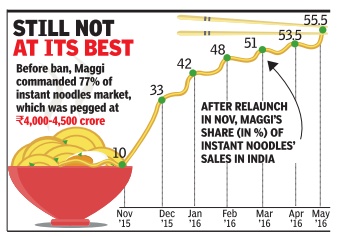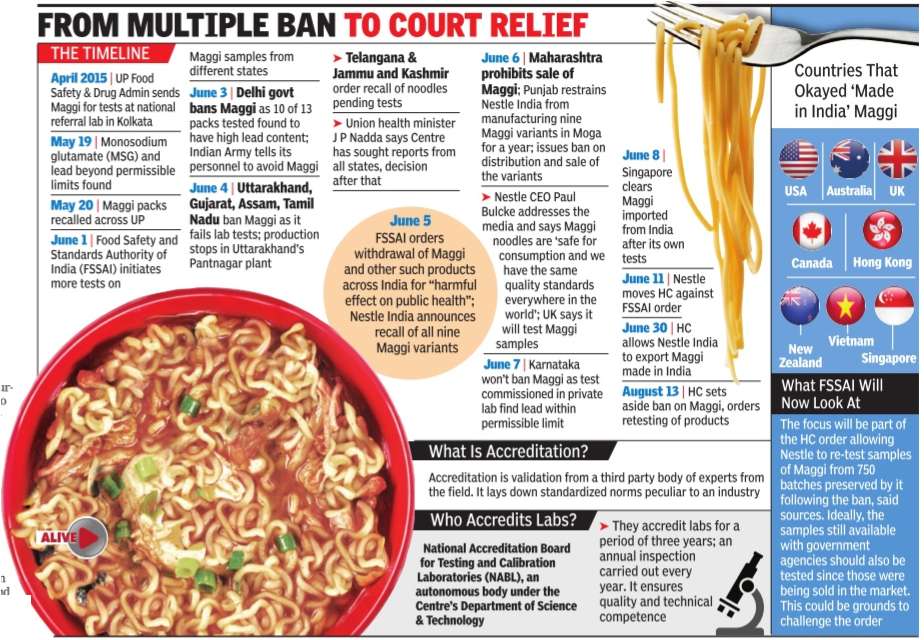Maggi noodles: India

This is a collection of articles archived for the excellence of their content. |

Ban on Maggi, subsequent litigation
Bombay HC questions quality of laboratories
The Times of India, Aug 14 2015
Tests can't be relied upon as labs not accredited: HC
Over two months after the food safety regulator imposed a nationwide ban on Maggi noodles, the Bombay high court struck down the order as “arbitrary“ and “in violation of the principles of natural justice“. The decision, which questioned the quality of the laboratories where noodle samples were tested, is a welcome relief for Nestle India, but it will be some time before Maggi can hit the shelves. A divi sion bench of Justices V M Kanade and Burgess Colabawalla directed a series of tests at three premier accredited laboratories in India to check lead content in Maggi before it can be sold again.“We are still concerned about public health and public interest,“ said the judges.
The Food Safety Standard Association of India (FSSAI) had ordered recall of the popular noodles on June 5, saying tests showed presence of lead in excess of permissible limits and also traces of MSG.
`Labs not accredited', P 22 Aplea by the authorities to stay the verdict was rejected by the HC. Outside the court, officers were non-committal whether the order would be challenged.
Welcoming the ruling, Nestle India said the trust of their consumers and safety of their products were their “utmost priorities“ and they would be working to bring the product back on shelves as soon as possible. FSSAI and Maharashtra's Food and Drugs Department (FDA) had justified the ban claiming it was done in public interest and to ensure food safety after reputed laboratories indicated the presence of lead much in excess of permissible limits and MSG despite the declaration on the packets that it contained “no added MSG“. Nestle had challenged the tests and argued its products did not contain lead in excess of permissible limits.
The HC found that the tests could not be relied upon as the laboratories were not accredited by the National Accreditation Board for Testing and Calibration Laboratories (NABL).“The food laboratories where the samples were tested were not authorized labs as provided under the Food Safety Act...Therefore, no reliance can be placed on these results,“ the judges said. Since the HC held that the tests were unreliable, it said FSSAI had been unable to prove that the lead content was beyond permissible limits.
Ruling to dent Rs640cr suit against Nestle?
The Rs 640-crore class action suit of Department of Consumer Affairs against Nestle for its `hazardous' Maggi may face serious trouble after the Bombay HC ruled in favour of the Swiss multinational. Experts say Nestle may use the same ruling to claim its innocence in front of the consumer redressal forum.